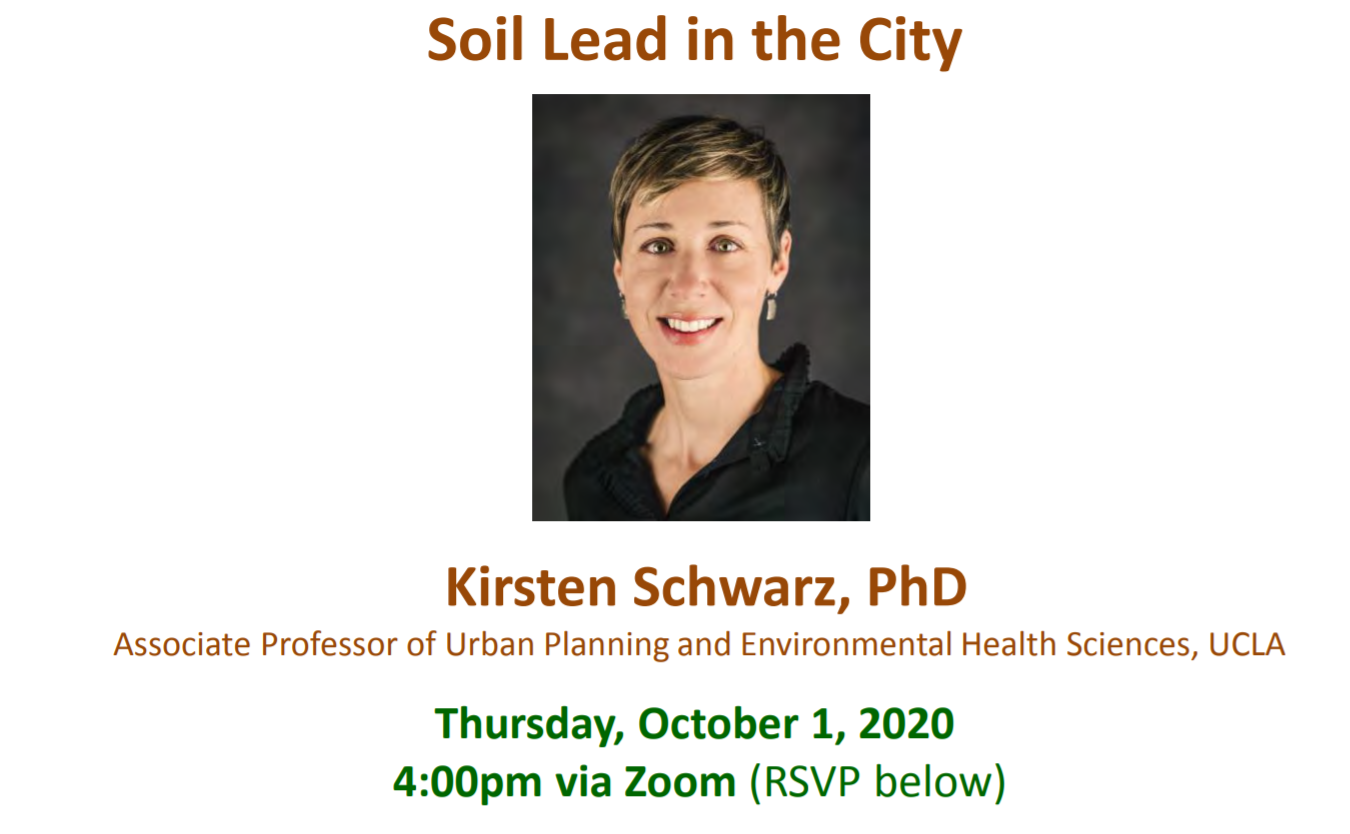October 1, 2020
2:00am – 3:00am
Zoom | RSVP for link https://tinyurl.com/EHS411
About the lecture: As the Flint water crisis and other national stories on lead have demonstrated, lead is a legacy pollutant of contemporary significance. A great deal of research has focused on the health effects of lead-based paint. Less attention, however, has been given to the problem of soil contaminated with lead from the past use of products such as lead-based paint and leaded gasoline as well as industrial activities. Understanding patterns of soil lead is critical as we strive to transform our older industrial cities into sustainable cities – places where we envision accessible green space, local sources of healthy food, and just economies. Urban gardens are a key component of sustainable cities, providing nutritious food and a connection to community and place. But we must also manage tradeoffs to gardening in the city, like exposure to pollutants, including lead. I’ll discuss ongoing research that is addressing this trade-off. Urban ecological research is contributing part of the solution by exposing the spatial legacy of lead. By better understanding the patterns of soil lead in the city, we can support safe and healthy urban gardening, helping to build a brighter and more sustainable future for our cities.
About the speaker: Kirsten Schwarz is an Associate Professor in the Departments of Urban Planning and Environmental Health Sciences at the University of California, Los Angeles. Dr. Schwarz has a B.A. in Human Ecology from College of the Atlantic and a Ph.D. in Ecology from Rutgers University. As an urban ecologist working at the interface of environment, equity, and health, her research focuses on environmental hazards and amenities in cities and how their distribution impacts minoritized communities. Her expertise in science communication and engaging communities in the co-production of science was recognized by the American Association for the Advancement of Science (AAAS) naming her a Fellow in the Leshner Leadership Institute in the Center for Public Engagement with Science and Technology. Schwarz’s research has been funded by the National Science Foundation, AAAS, and the University of California Agriculture and Natural Resources.
RSVP at https://tinyurl.com/EHS411

